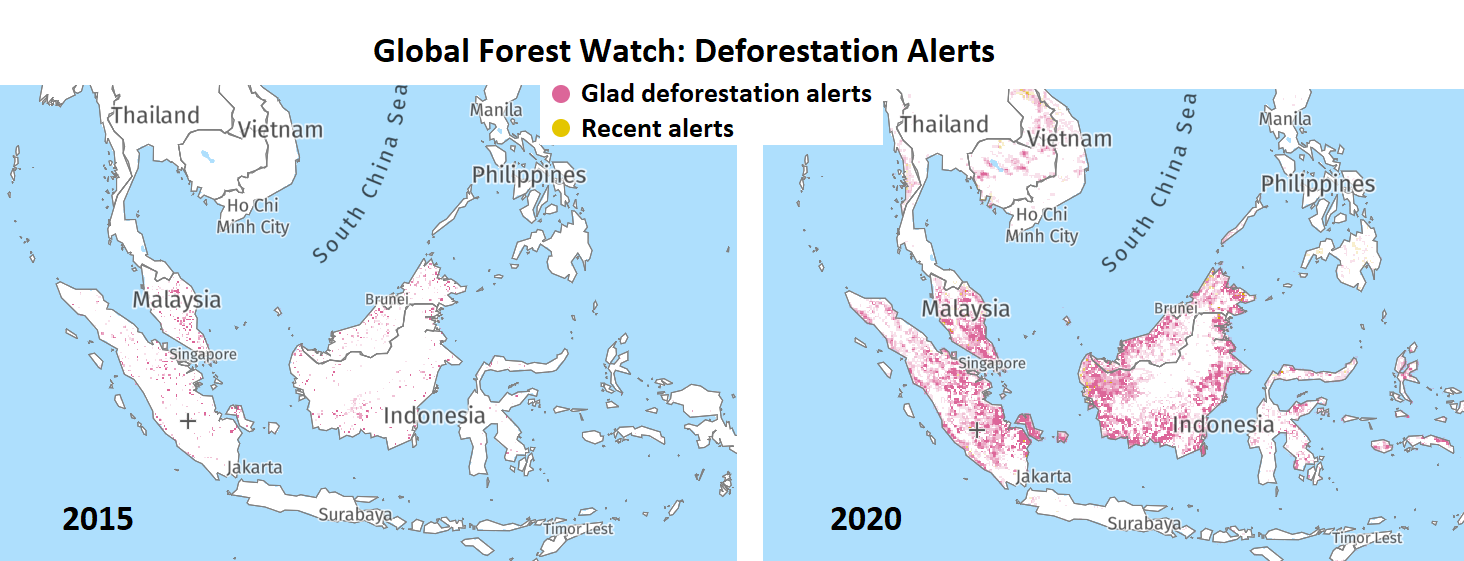Radar to Detect Deforestation: ENS
Major palm oil producers and buyers – including Cargill, Mondelēz, Nestlé, Pepsico and Unilever – are supporting development of a radar system for monitoring deforestation in near real-time. “With this information, the companies say they can more quickly mobilize follow-up actions on the ground and work to improve the sustainability of commodity supply chains,” reports Environment News Service. “A high rate of forest loss due to human activities combined with more frequent extreme climate events is increasing the pressure on the Earth’s forest ecosystems. At the same time, countries and major commodity sectors are committing to zero-deforestation pledges.” Clearing forests to produce palm oil contributes to the decline of orangutan populations in Indonesia and Malaysia; up to 80 percent of forest habitat favored by orangutans has been lost during the past 20 years. Wageningen University and Satelligence, a Netherlands-based remote imaging company, are developing the system, facilitated by the US-based World Resources Institute and the European Space Agency’s Sentinel-1A and B satellites. The system will provide public alerts via Global Forest Watch, and ENS concludes, “The open nature of the system will enable companies – plus governments, civil society organizations, and concerned stakeholders – to monitor forests using the same information source and standards.” – YaleGlobal
Radar to Detect Deforestation: ENS
Multinational corporations that produce and purchase palm oil support development of a radar system to monitor and prevent illegal deforestation
Wednesday, April 29, 2020
Read the article about a multinational effort to prevent deforestation and loss of habitat in Malaysia and Indonesia.

Environment News Service
Copyright Environment News Service (ENS) 2020. All rights reserved